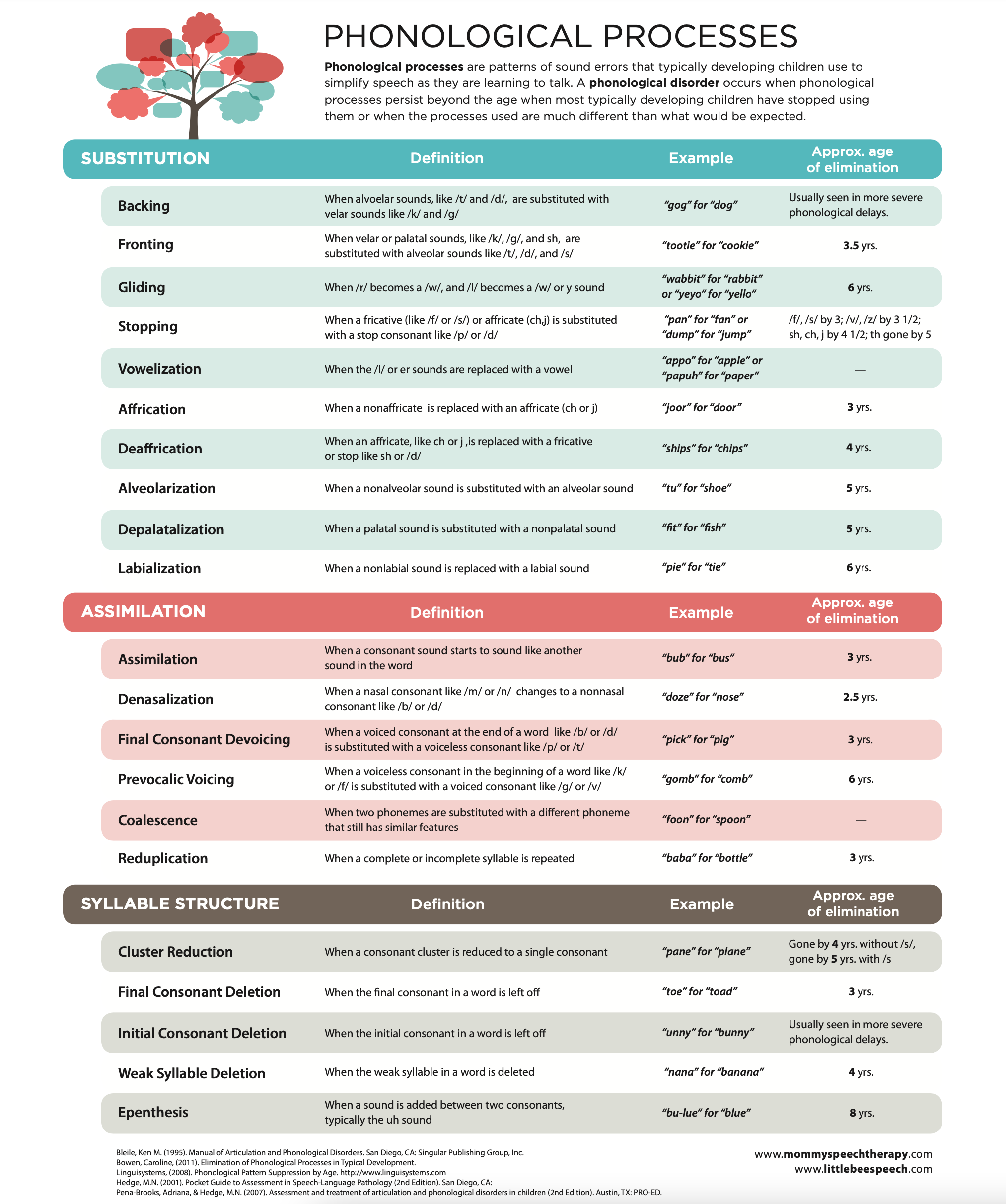
Do you find yourself asking your child to repeat what they said, utilizing your detective skills to figure it out, or perhaps acting as your child’s commentator for people that are less familiar with their speech? We know that children can sometimes be difficult to understand when they are learning to speak. It can be tricky to know if this is part of typical development or if your child would benefit from support. In this post, we will help you understand phonological processes and their potential impact on your child’s overall speech intelligibility.
What is typical for intelligibility?
Intelligibility refers to the amount of speech that is readily understood by a listener. A good standard for how well children can be understood by their parents is as follows:
- By 18 months, a child’s speech is typically 25% intelligible
- By 24 months, a child’s speech is typically 50-75% intelligible
- By 36 months, a child’s speech is typically 75-100% intelligible
What are phonological processes?
Phonological processes are predictable developmental patterns that children use to simplify their speech as they are learning to talk. Your child might use these patterns if they are not developmentally ready to coordinate all of the precise movements required for production of certain sounds or syllable shapes that are more complex. For example, your child might refer to a cookie as “tootie” or a banana as a “nana.” Depending on your child’s age and stage of development, the use of these processes can be considered typical or can indicate a need for further evaluation. The chart below (from Mommy Speech Therapy) outlines the different phonological processes, their definitions, examples of each, and the approximate age at which these processes are typically eliminated as part of development, beginning around age three.

http://mommyspeechtherapy.com/
When should I seek support?
If your child uses these processes in their speech for longer than expected, uses many different processes, and/or uses processes that are less typically seen in development, their overall intelligibility can be impacted, leading to difficulties being understood by adults, peers, and other communication partners. In this case, your child could benefit from evidenced-based, individualized support to facilitate acquisition of age-appropriate phonological skills.
What else can I do?
Your child’s speech-language pathologist can help to determine which phonological processes your child is currently using and whether or not therapeutic intervention is indicated. If so, your child’s therapist will develop individualized goals and implement an evidenced-based treatment approach. Your child’s therapist will work with you to establish a home practice program in order to facilitate generalization of skills learned in therapy across environments and communication partners. If your child does not yet have a speech-language pathologist and you are concerned about their overall intelligibility or use of phonological processes, please contact our office to schedule a screening or a full evaluation with one of our experienced clinicians.
Questions or concerns?
If you have questions or concerns about your child’s overall intelligibility or use of phonological processes, please contact us at info@playworkschicago.com or 773-332-9439.
Ana Thrall Burgoon, MS, CCC-SLP
Speech-Language Pathologist
References: Bowen, C. (2011). Table 1: Intelligibility. From Speech-Language-Therapy.com. Retrieved March 15, 2021.
Phonological Processes. From Mommy Speech Therapy. Retrieved from http://mommyspeechtherapy.com/wp-content/downloads/forms/phonological_processes.pdf. Retrieved March 15, 2021.
Photo Credit: Photo by Kindred Hues Photography on Unsplash
